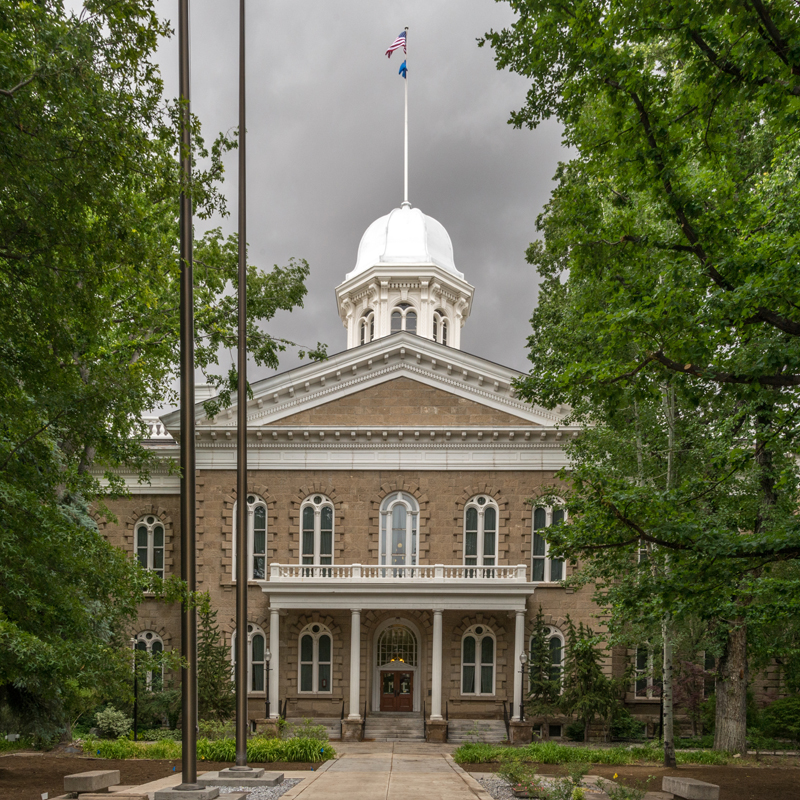Nevada is one step closer to enacting a state-run program to provide coverage to certain private-sector employees. In the meantime, Nebraska’s legislature may seek an examination of the retirement system that serves public employees, including public school teachers, and coverage under the New York City Board of Education Retirement System may expand.
Silver State Senate Smiles on Savings Program
The odds increased of Nevada becoming the next state to provide retirement plan coverage to private-sector employees whose employers do not, when the state Senate voted on May 29 in favor of legislation that would do just that.
SB305 was introduced on March 16, 2023.
ARA Support. The American Retirement Association (ARA) on April 12 had sent a letter in support of the legislation to Nevada Senate Government Affairs Committee Chair Sen. Edgar Flores (D-Clark County). Said the ARA:
The ARA believes that Senate Bill No. 305 strikes the proper balance to close the retirement plan coverage gap in the private sector workforce to the greatest extent possible while imposing the minimum possible burden on Nevada’s employers. Senate Bill No. 305 requires all private sector employers with an electronic payroll system in the State of Nevada to offer a retirement plan to their employees. Senate Bill No. 305 ensures that any type of retirement plan, such as a 401(k) plan, satisfies the requirement. Further, Senate Bill No. 305 creates a state-facilitated IRA-based retirement program designed to be exempt from the Employee Retirement Income Security Act (ERISA). This approach will not force the state to compete with the many existing retirement plan products in the marketplace.
Regarding the May 29 Senate vote, ARA Director of Federal and State Legislative Affairs Andrew Remo said, “The American Retirement Association is encouraged this bill is continuing to move through the process before the end of the session. There has been a lot of legislative action in the states the past few weeks to address retirement plan coverage and we welcome Nevada to the party!”
What the Bill Would Do. SB305 would establish a state-run retirement savings program for private-sector employees.
The bill would create a Board of Trustees of the Nevada Employee Savings Trust and prescribe its membership, powers, duties, and limitations of the board. It also would create the Nevada Employee Savings Trust Administrative Fund, and says that the money in the Fund would solely be used to pay the administrative costs and expenses of the board and the program. 
The Board. The bill would give the board the authority to:
1. design, establish and operate the Nevada Employee Savings Trust Program; and
2. adopt regulations, rules and procedures for the establishment and operation of the program and to take such other actions necessary or desirable to establish and operate the program.
SB305 also would require the board to prepare informational materials, disclosure statements, forms, and instructions concerning the program for distribution by covered employers to covered employees.
The legislation provides that members of the board, the trustee and certain other persons involved in the administration of the trust are fiduciaries regarding the participants in the program.
Employers. SB305 provides that covered employers must automatically enroll all covered employees in the program or in a similar program offered by a trade association or chamber of commerce. Through the program, money would be withheld from a covered employee’s compensation and contributed to an IRA, at a contribution rate set by the board.
Employees. Covered employees would be enrolled in the program automatically. They also could:
- opt out;
- change the contribution rate; and
- withdraw contributions to meet a financial or other emergency.
Funds. The bill would require that the assets of all IRAs established by covered employees through the program be allocated to the trust and invested, managed and administered for the exclusive purposes of providing benefits to the covered employees and defraying the reasonable expenses of the board, program and trust. SB305 also would establish certain investment guidelines and practices.
Status. SB305 was referred to the Committee on Government Affairs, which amended it and passed it on April 19; the Committee on Finance then did the same on May 26. On that day, the Senate voted in favor of the bill in a 15-5 vote. The bill is now pending before the Nevada Assembly.
Proposal to Examine Nebraska Public School Teachers’ Retirement System
A resolution before the Nebraska legislature calls for an examination of the retirement system that serves public employees in the Cornhusker State, including public school teachers.
Sen. Mike McDonnell (Omaha) introduced LR157 on May 11; on May 23 it was referred to the Nebraska Retirement Systems Committee of the legislature.
The resolution proposes that the Nebraska Retirement Systems Committee conduct an interim study to examine the Nebraska public employees' retirement systems administered by the Public Employees Retirement Board. Among those systems is the School Employees Retirement System of the State of Nebraska. The study would examine issues related to the funding needs, benefits, contributions, and the administration of that retirement system as well as the others.
ABC Could Mean Automatic BERS Coverage with Albany’s Nod
Legislation is before the New York state Senate that would allow certain employees of the city of New York to be automatically enrolled in the New York City Board of Education Retirement System. 
The state Assembly has passed the legislation; a third committee of the state Senate is now considering it.
Stacey Pheffer Amato (D-South Queens) introduced A7156, the version in the New York state Assembly. S6861 was introduced in the state Senate by Sen. Robert Jackson (D-Manhattan).
The legislation would amend Section 2575 of the Education Law to require the automatic enrollment into BERS of certain new and existing employees of New York City who are:
1. eligible for BERS coverage;
2. non-provisional;
3. not currently mandated to join BERS; and
4. who are not otherwise already a member in a public retirement system within the state.
Eligible employees would be able to opt out of membership.
As Things Stand. Current law provides that certain BERS-eligible employees—including provisional employees and employees in non-competitive and exempt class titles—may join BERS; to do so, they must apply for membership with a BERS-participating employer. Permanent employees who are employed in BERS-eligible positions are automatically covered by BERS.
Under current optional enrollment rules, 55% of eligible employees eventually join BERS. According to Jackson’s office,
It is not unusual to learn the story of many employees who each day provide vital public services alongside coworkers who are covered by a full pension only to discover, after many years on the job, that they missed their opportunity to enroll and end up losing time earned pension benefits when they register many years after entering the system. This class of public employees loses valuable pension benefits with some of them never knowing that they were entitled to a pension plan that could have provided economic assistance which often leaves them impoverished when they can no longer work.
What the Legislation Would Do. The legislation provides that beginning July 1, 2023, BERS would be required to enroll new nonprovisional and nonpermanent eligible employees into BERS within 90 days of their hiring unless the employee opts out within those 90 days. Eligible employees would be able to enroll before automatic enrollment kicks in.
Existing nonprovisional and nonpermanent employees who are not already BERS members would be enrolled on Oct. 1, 2023, unless they opt out. Those who do would be able to apply to rejoin if they change their minds.
Employers participating in BERS and affected unions would be required to provide multiple scheduled written notices of the applicable provisions to new employees. BERS itself would be required to provide written notice to an employee's union within 30 days of the employee's enrollment into BERS.
Effective Date. If enacted as currently written, the measure would be effective on July 1, 2024.
Status. A7156 was referred to the Assembly Governmental Employees Committee on May 11, 2023; five days later it reported the bill. The Ways and Means Committee reported the bill on May 24; it was then reported and referred to the Rules Committee, which reported it on May 30. The Assembly passed it on May 31.
S6861 was reviewed by the Senate Civil Service and Pensions Committee, which reported the bill on May 23. It was then referred that day to the Finance Committee, which discharged it a week later. The bill is now before the Senate Rules Committee.
- Log in to post comments
